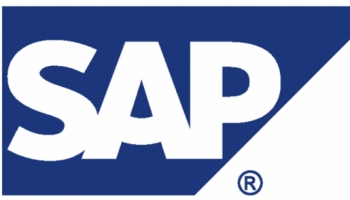

Seeking to add new mobile application and cloud computing technology to its portfolio, SAP on May 12 agreed to pay $5.8 billion (£3.9bn) to acquire Sybase, a database and mobile enterprise software company.
The acquisition will bring major new revenue streams and strategic technology to help SAP to stay competitive with archrival Oracle. Prior to the buyout, Sybase had been one of SAP’s strategic partners.
SAP has identified mobile computing along with cloud computing and its long-established on-premises enterprise resource management applications as the main pillars of its business growth going forward.
“Mobile devices are becoming the preferred interaction point with business applications, whether the user is a factory supervisor, a retail manager or an entrepreneur in a development nation,” said Jim Hagemann Snabe, co-CEO of SAP and a member of the SAP executive board, in announcing the acquisition.
Yankee Group analyst Sheryl Kingstone said her company has long suggested that SAP should acquire Sybase “primarily because of the key partnerships that they already have” developed over the past several years.
“Sybase brings to the table a mobile platform that can help SAP transform their applications to be consumed anywhere, any time on any device. This is crucial for SAP to stay competitive,” Kingstone said. “Past Yankee Group reports have elaborated on the need for enterprise applications to adopt cloud computing, mobility and social media technologies—this deal gives SAP two out of three in one purchase.”
The deal was actually negotiated and closed as a result of a merger agreement signed by SAP American, the parent company’s US subsidiary. SAP has agreed to pay $65 (£44) per share for Sybase, a 44 percent premium over the company’s three-month average stock price. The Sybase agreement is SAP’s biggest acquisition since it bought business intelligence software producer BusinessObjects for $6.7 billion (£4.5bn) in 2008.
SAP plans to pay for the Sybase acquisition from cash and with a $3.488 billion (£2.361bn) loan from Barclays Capital and Deutsche Bank. SAP officials said Sybase will operate as a stand-alone unit under the name “Sybase, an SAP Company.”
Snabe told reporters at an April 14 news conference at SAP’s Palo Alto, California product development headquarters that the company had no plans to launch a prolonged and expensive corporate acquisition campaign similar to the buyout spree waged by Oracle when it acquired over 40 companies large and small starting in the early 2000s at a cost of well over $40 billion (£27bn).
“You can easily buy yourself growth in this industry,” Snabe said at that press conference. But in the case of Oracle, he said, the industry is “seeing lots of acquisition to build revenue growth, but very little innovation. We have done the opposite. We have tried to innovate” through product development in strategic areas such as business process management and through expanding business intelligence, data mining and data analytics, he said.
However, co-CEO Bill McDermott said SAP wasn’t ruling out all future acquisitions. “If it fits into our strategy and helps build our relationship with customers” SAP would not shy away” from a corporate acquisition that “made sense,” he said.
Sybase first rose to prominence in the mid-1980s as one of the early developers of a commercial enterprise relational database. Sybase database servers helped drive the development of client/server business applications that diverted huge amounts of data processing capacity from once-dominant mainframes and minicomputers to large arrays of networked microcomputer servers supporting business applications running on PC desktops.
Sybase databases were widely adopted, especially in financial services and other vertical industries. The company was also one of the prominent survivors along with Oracle and IBM of the relational database marketing battles of the ’80s and ’90s, in which other companies such as Informix and Ingres fell by the wayside. There was even a period in the late 1980s when Sybase had a chance to supplant Oracle as the most prominent client/server relational database company.
But by early ’90s Sybase found itself falling behind in the database market as a result of product development delays and other missteps.
Sybase returned to a steady growth path in the 2000s with the development of mobile data and mobile device management products. Its iAnywhere Mobile Office provides mobile email and business workflow applications on multiple mobile devices, while Sybase Afaria provides an administrative console for securely distributing data and applications on mobile devices.
New chapter for famous name from Internet's early days, Napster, has been acquired and will…
Solving not-spots? Ofcom proposal to make UK the first European country to allow ordinary smartphones…
Pioneering robotaxi service from Alphabet's Waymo to go live in Washington DC next year, as…
Dozens of Chinese firms added to US export blacklist, in order to hamper Beijing's AI…
Chinese rival BYD overtakes global revenues of Elon Musk's Tesla, as record number of Tesla…
Messaging app Signal in the headlines after a journalist was invited to a top secret…